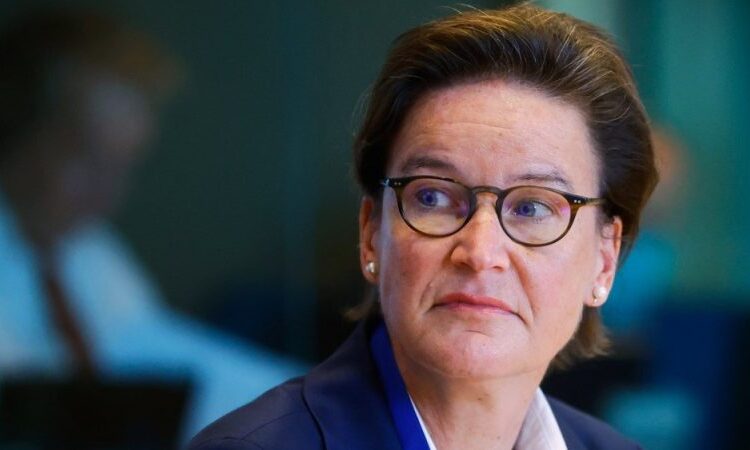
Enrico Letta will tell EU leaders and heads of state on Thursday (18 April) that the European Markets and Security Authority (ESMA) should start supervising the bloc’s largest financial sector firms and oversee the creation of a pan-European IPO venue for small and medium businesses.
The final draft of Letta’s high-level report on the single market, seen by Euractiv, calls for “a strengthened role” of ESMA, first and foremost by centralising the oversight of the most systemic financial market players—along similar lines to what the EU previously enacted for the largest cross-border banks.
The report says the system must evolve similarly to the banking sector’s single supervisory mechanism, where the European Central Bank’s Single Supervisory Mechanism […] directly oversees significant banks, while national supervisors manage less significant ones.
It adds that “a strengthened ESMA […] could assume more supervisory responsibilities for major entities based on criteria such as size, cross-border activities, and their systemic importance, encompassing trading venues, issuers, asset managers, and other financial market participants.”
The move towards centralised markets supervision would mark a substantial breakthrough within the EU’s strategy for deepening its capital markets – as its ten-year-old Capital Markets Union (CMU) plan has struggled to yield any major policy innovation besides tweaking a few aspects of existing legislations.
Political disagreement among member states has, in fact, barred progress on the most complex items on the table. Among these, market supervision has proved the most contentious – with EU Council negotiators steering clear of proposals for explicitly centralising oversight and instead focusing on convergence and harmonisation.
This is mainly due to countries fearing a weakening of their national clout – with an EU diplomat telling Euractiv that 12 member states have so far objected, the most vocal of which has been Germany – which worries France would be favoured, as it hosts ESMA in Paris.
“Regarding supervision, some fear that a supervisory authority would be controlled by France,” the EU diplomat commented.
A phased-in and risk-based approach: Equity markets first
That Letta wouldn’t shy away from putting forward bolder proposals had already become apparent from the leaked introduction of his paper – reported by Euractiv on Monday (15th April).
However, the former Italian prime minister proposes a nuanced approach to integrating the bloc’s supervisory framework that may get broader consensus when he presents it at Thursday’s special EU Competitiveness Council.
“Establishing a single, centralised supervisor in the EU at this stage may be premature, potentially overlooking the benefits of proximity to the diverse local financial markets and economies within the EU”.
“Gradually enhancing the direct supervisory powers of ESMA” could instead happen through two different routes.
One, Letta says, is only to shift the supervision “of the most integrated markets or significant market players […], particularly when supervision proves more effective at a supranational level, such as with equity markets.”
Under a second scenario, the European Commission could “assess market integration for each directive or regulation […] to pinpoint where supervisory efficiency is most advantageous”, the report says, “and suggests a data-driven handover to ESMA whenever” these laws go under review.
Conversely, where market integration is less pronounced, harmonised practices and mutual recognition among national supervisors “should suffice to ensure efficiency.”
EU-wide IPO ‘getaway’ for SMEs
Another proposal advanced by Letta would see ESMA manage the establishment of a regulatory framework for an EU-level “IPO access point” tailored exclusively to small and medium enterprises (SMEs)—i.e., a specialised listing venue for SMEs that facilitates their first foray into capital markets.
In this ad-hoc IPO venue, SMEs would be granted simplified listing requirements “proportionate to their age, size, and ownership structure “before they transition to their chosen EU stock exchange, the report says.
Under this scenario, stock exchanges would be called to collaborate to “pool their small and mid-sized segments,” and ESMA would supervise their “joint venture.”
*Sarantis Michalopoulos contributed to this article
[Edited by Alice Taylor]







